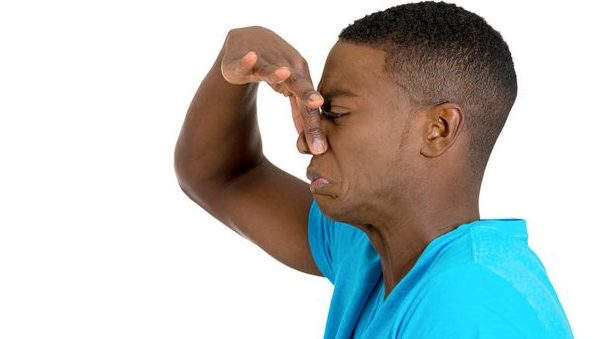
Bad breath, also called halitosis, can be embarrassing and in some cases may even cause anxiety.
Not all bad breath are caused by diseases, some are a product of poor lifestyle choice.
Here are 5 reasons why your breath smells:
[ad]
You Just Woke
Morning breath is totally normal and here is why it happens: While you’re sleeping peacefully, the bacteria in your mouth are not. They take advantage of the fact that your production of saliva slows way down during sleep—and since your saliva helps “clean” your mouth, your breath might have a bad odour until you brush your teeth the next morning.
Poor Dental Hygiene
If you don’t brush and floss daily, food particles remain in your mouth, causing bad breath. A colorless, sticky film of bacteria (plaque) forms on your teeth. If not brushed away, plaque can irritate your gums and eventually form plaque-filled pockets between your teeth and gums (periodontitis). Your tongue also can trap bacteria that produce odors. Dentures that aren’t cleaned regularly or don’t fit properly can harbor odour causing bacteria and food particles
The Food You Eat
The breakdown of food particles in and around your teeth can increase bacteria and cause a foul odour. Eating certain foods, such as onions, garlic and spices, also can cause bad breath. After you digest these foods, they enter your bloodstream, are carried to your lungs and affect your breath.
You Smoke
Add halitosis to the list of health conditions that can be caused by cigarettes. Unsurprisingly, smoking not only increases the amount of odour producing compounds in a person’s mouth and lungs, but the habit can also dry out your mouth, leading to lower saliva production, according to a 2004 review by researchers from Hong Kong
You Drink Alcohol
Alcohol lingers on your breath long past last call. In fact, one 2007 study by researchers from Israel found that drinking alcohol was linked to increased rates of halitosis—and this, despite the fact that their subjects had fasted for 12 hours overnight and were also allowed to brush their teeth in the morning. The study authors suspect that not only does booze dry out a person’s mouth, but that a certain odor is triggered when the body metabolizes alcohol.
[ad unit=2]








